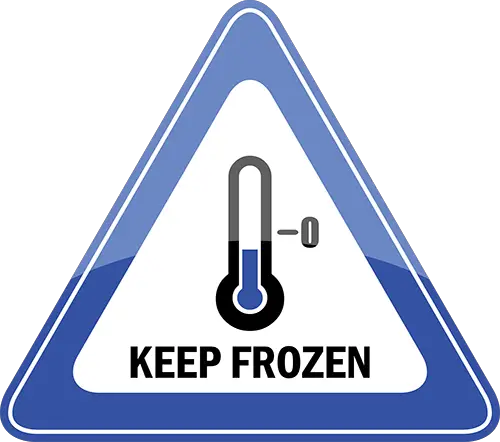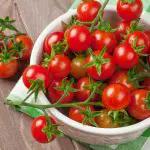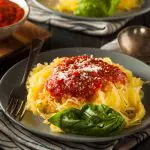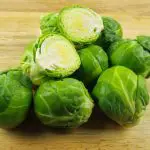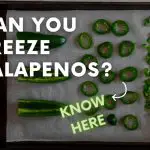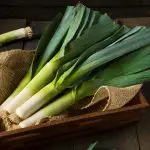Can You Freeze Cooked Veggies? (How To Guide)
Most people know freshly picked vegetables can be frozen, but what about cooked veggies? Can they be frozen as well?
The answer is yes, cooked vegetables can be frozen. Freezing cooked vegetables is a good way to store your prepared veggies. Frozen cooked vegetables can be easily and quickly warmed up as part of a meal, or they can be added to cooked dishes you are currently making.
In fact, many raw vegetables are blanched (briefly tossed for a minute into a large pot of boiling water) to help them retain their flavor and structure before being placed in the freezer. So even most fresh vegetables are partially cooked before they’re frozen.
However, when it comes to freezing fully cooked veggies, some fare better than others, but in general, you can freeze just about anything to help it stay fresh.
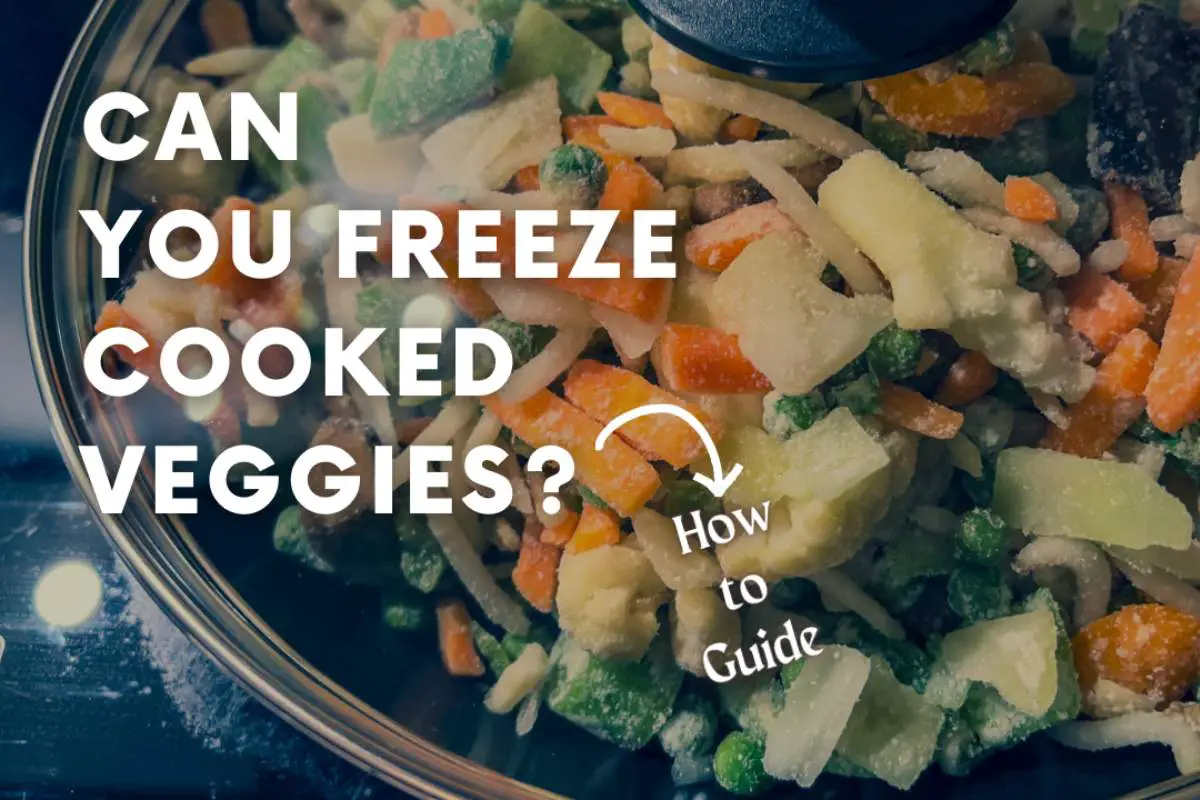
The Benefits of Freezing Cooked Veggies
Freezing cooked vegetables has many benefits:
- The fact the vegetables are precut saves you time on preparing them for the next meal.
- Frozen cooked vegetables help make a quick meal.
- Cooked frozen vegetables can be used as a complete meal, side dish, or as an ingredient in a soup or stew.
- Cooked frozen vegetables don’t need defrosting – you simply reheat them in a pan or the microwave.
Some vegetables can be blended or mashed before freezing. Others fare better if spread out on a baking sheet lined with parchment paper for a few hours first (i.e., flash freezing).
The Effects of Freezing on Cooked Vegetables
Here is a look at the effects of freezing on some commonly cooked vegetables.
Carrots
Carrots freeze well whether they are fresh or cooked. Store carrots in a plastic container or baggie, and they will last three months.
Cooked carrots do lose their texture when cooked, so you can mash them before you store them in the freezer if you’d like.
Cabbage
Boiled cabbage freezes well when placed into an airtight container. It should retain its taste and texture for about nine months.
Cauliflower
Cooked cauliflower freezes quite well unless it is mashed or riced. Cut it up into florets and place it in airtight containers or freezer baggies. Frozen-cooked cauliflower can be kept in the freezer for up to eight months.
Baby Kale
Both raw and cooked baby kale can be frozen in a plastic bag. Be aware that cooked kale is very susceptible to freezer burn and should ideally be used within three weeks.
Broccoli
Both raw and cooked broccoli lasts for months in the freezer.
Cut broccoli into the desired size and spread the pieces on a baking tray in the freezer for several hours. Then store the florets in a plastic container or zippered freezer bag for future use.
Spinach
Cooked spinach can be frozen, but it will lose almost all of its texture. For that reason, it is best to use frozen cooked spinach in soups and stews. It also doesn’t last as long in the freezer as some other cooked vegetables. It should be eaten within 30 days.
Okra
You can freeze cooked okra, but its slippery texture does not stay intact. For this reason, it is best to eat it thawed in a soup or stew. Don’t leave it in the freezer for over a month.
Onions
Cooked onions can be frozen, but they also lose their texture. For this reason, it is best to use defrosted onions in soups, casseroles, or stews where the texture won’t detract from the dish.
It is best to eat frozen cooked onions within three months. You can also freeze onions as a puree and use them in soups and stews.
Turnips
Cooked turnips contain a lot of cellulose and lose their shape and texture after being in the freezer for about eight months.
Freezing Roasted Vegetables
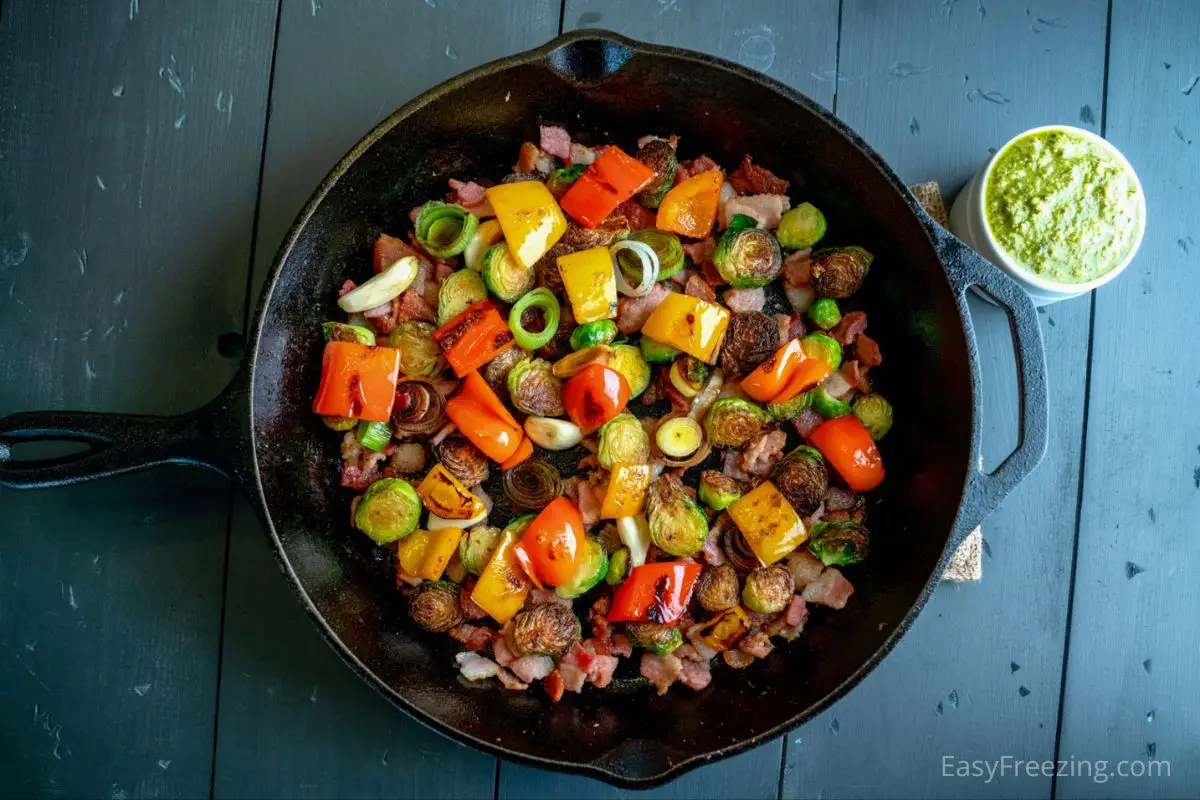
Roasted vegetables are among the easiest foods to freeze. Roasted veggies tend to last twice as long in the freezer compared to those fried, boiled, or steamed.
There is no need to start defrosting ahead of time. You can create a delicious meal just by reheating frozen veggies under the broiler for five minutes
Vegetables that can be roasted and frozen include:
- Asparagus can last up to eight months.
- Corn that can last up to a year.
- Mushrooms that can last up to three months.
- Peppers can last up to ten months.
- Potatoes that can last up to six months.
- Radish, which can last up to three months.
How to Freeze Cooked Vegetables In Stock
Frozen roasted vegetables may last even longer if frozen in stock in an airtight container. Use any type of stock that you want as the bed of broth for the cooked vegetables, including beef, chicken, or vegetables.
Raw Vegetables That Freeze Best Blanched
Blanching refers to the process of placing raw vegetables in boiling water for two to three minutes and then putting them in a bowl of icy water before drying, packaging, and placing them in the freezer. This helps to eliminate naturally occurring enzymes that cause the vegetable to get mushy when frozen.
Blanched vegetables aren’t cooked, but they are partially cooked, which helps them retain structure and flavor when frozen.
Carrots
Raw carrots freeze best when they have been blanched or slightly cooked first. Once blanched, they can be flash frozen, then placed in a freezer-safe bag for long-term storage.
Celery
Celery freezes best when it is cut up and blanched for two to three minutes and then laid out on a sheet to freeze for a few hours. After that, the celery sticks can be tossed together and frozen in a plastic baggie.
Leafy Greens
You can freeze any leafy green if you blanch them for a couple of minutes before putting them in the freezer. This means that spinach, collard greens, and beet tops will be almost half cooked when you take them out of the freezer. They can easily be tossed into a stir fry, stew, or soup.
Generally speaking, it is difficult to freeze lettuce. It’s possible, but the results are very unappetizing on their own. Cooked or blanched leafy greens are best added to another cooked dish.
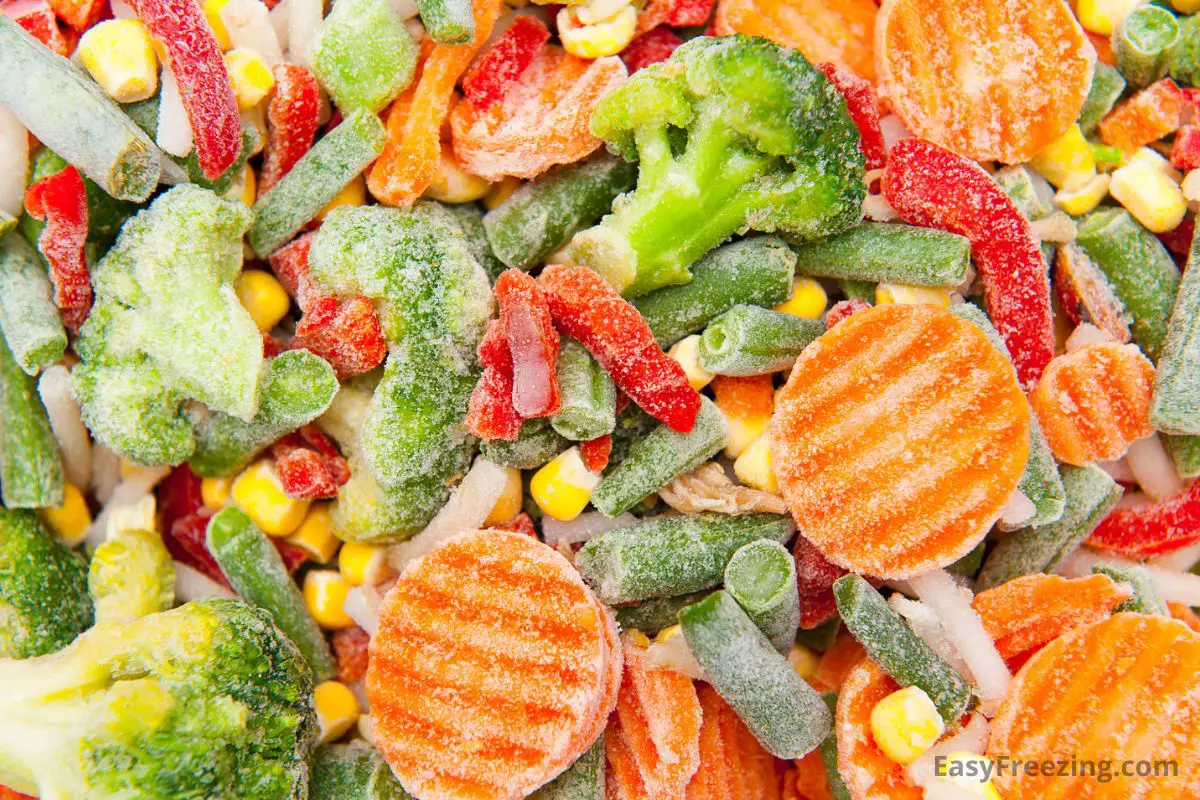
Consider These Things When Freezing Cooked Vegetables
Here are some top things to consider before you freeze cooked vegetables:
- Always let the vegetable cool down to room temperature before freezing.
- Frozen cooked vegetables will tend to be mushy when cooked a second time.
- To retain the firmness of a cooked vegetable, cut it up and spread it on a baking tray, then freeze it for several hours before transferring it to containers or bags.
- Keep a good supply of plastic containers and freezer bags on hand to freeze cooked vegetables.
- You can freeze cooked food in mason jars as long as it is not wet, or the jar will break.
- Mushy foods, like cooked spinach or mashed potatoes, can be frozen in ice cube trays.
- Freezing raw vegetables in olive oil prepares them to crisp in a frying pan.
- A freezer label can help you keep track of leftover vegetables and other foods.
- You don’t need to thaw most cooked vegetables, but if you must, keep them in the fridge overnight. Do not leave them unthawed on the counter for more than two hours.
- Special tools such as a potato masher and parchment paper can assist with freezing vegetables.
- Investing in a vacuum sealer (Amazon) is a great idea, as these units, which suck all of the air out of plastic packaging, help your frozen cooked vegetables last twice as long.
- Do not boil cooked vegetables from the freezer, as they will turn into mush.
- To quickly reheat frozen cooked veggies, use a microwave.
- Refrying or broiling is the best for cooking previously cooked, frozen vegetables.
Can You Freeze Cooked Veggies – Conclusion
You can freeze cooked vegetables. Sooner or later, however, even frozen vegetables spoil. Make sure you have a plan for a future meal with any item you freeze.
